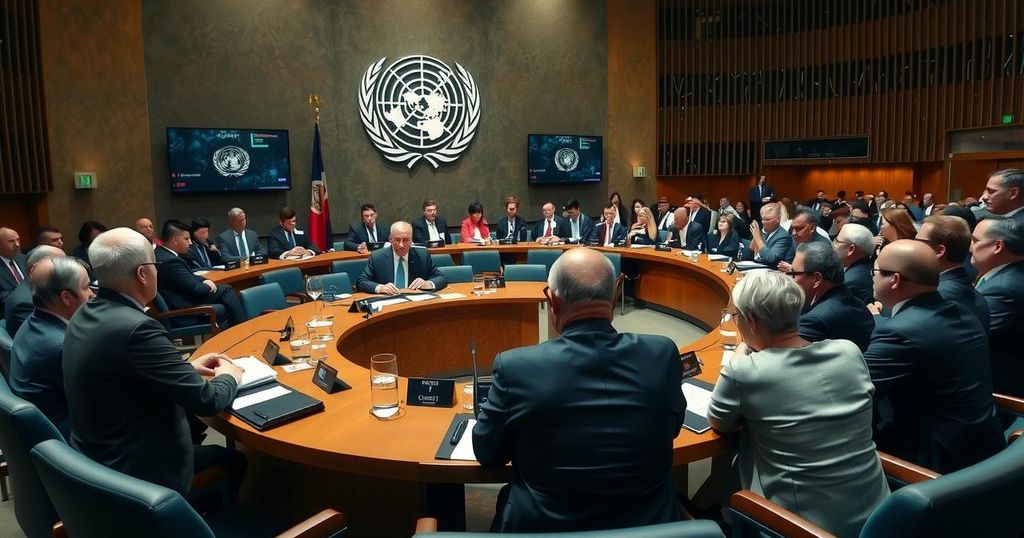The UN climate conference in Baku is marked by the absence of key world leaders responsible for significant carbon emissions, raising concerns about political commitment to climate action. While high-profile figures are missing, discussions on climate finance and support for developing nations are central to the conference. UN officials emphasize the need for a strong agreement to ensure developing countries benefit from these negotiations.
The annual United Nations climate conference convened in Baku, Azerbaijan, is marked by an absence of prominent world leaders, contrasting sharply with previous summits characterized by high-profile attendance. Notably missing are the heads of state from the 13 countries that are the largest contributors to carbon emissions, accounting for over 70 percent of the planet’s greenhouse gases. Countries such as China, the United States, India, and Indonesia—comprising over 42 percent of the global population—are notably devoid of direct representation from their leaders at this critical conference. Climate scientist Bill Hare expressed concern regarding this absence, indicating it reflects a disturbing lack of political motivation to engage meaningfully with climate change issues. He stated, “It’s symptomatic of the lack of political will to act. There’s no sense of urgency,” underscoring the gravity of the current climate crisis. United Nations Secretary-General Antonio Guterres characterized the present state of global climate conditions as unprecedented, describing recent extreme weather events as a “master class in climate destruction.” Despite the challenges, Guterres remained optimistic, suggesting that the momentum for clean energy is gaining irreversibly across the globe. He mentioned, “the clean energy revolution is here. No group, no business, no government can stop it,” emphasizing the urgent need for clean energy transitions. President Ilham Aliyev, hosting the conference, expressed his views on Azerbaijan’s energy resources while condemning criticisms levied at the nation. He emphasized, “Countries should not be blamed for having them,” referring to fossil fuels, and highlighted the importance of a pragmatic approach towards transitioning away from fossil fuels while still utilizing existing energy resources. His remarks reflect his commitment to fostering a green transition while recognizing the demands of the market. While the absence of key world leaders has led to a notable decline in star power at COP29, a significant representation from high-risk climate nations remains. The discussions are primarily centered on climate finance, where wealthier nations are expected to support developing countries in financing sustainable energy transitions and preparing for inevitable climate-related challenges. Guterres urged that “a deal is a must,” insisting that developing nations should not leave Baku empty-handed.
The backdrop to the UN climate conference reveals a concerning trend: significant world leaders are conspicuously absent from discussions that determine the fate of global climate policy. Past conferences often featured prominent figures, garnering public and media attention akin to major international sporting events. However, the current gathering reflects a shift toward lesser-known representatives, emphasizing a potential decline in international resolve to tackle climate change effectively. With this year’s focal points primarily revolving around climate finance, negotiations aim to address how nations can support each other in transitioning toward more sustainable energy practices amidst climate emergencies.
In summary, the current UN climate conference in Baku illustrates a disturbing absence of key global leaders from some of the world’s largest carbon emitters, raising significant concerns about political commitment to combating climate change. Despite these challenges, discussions on climate finance and the necessity of tangible agreements for developing nations remain paramount. The outcomes of this conference could have lasting implications for global climate action amid ongoing environmental crises.
Original Source: www.voanews.com






